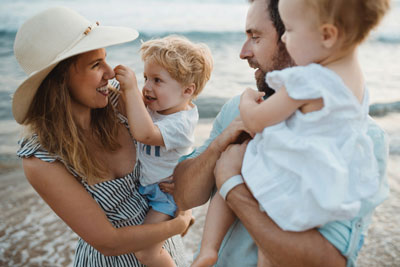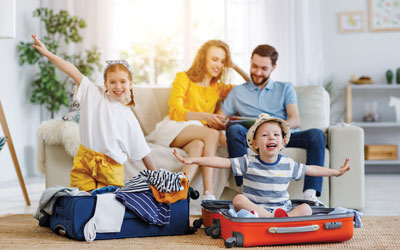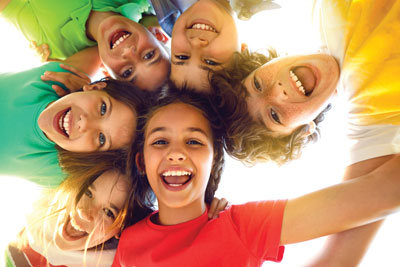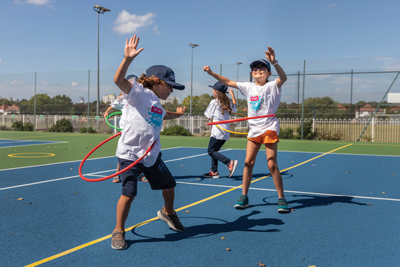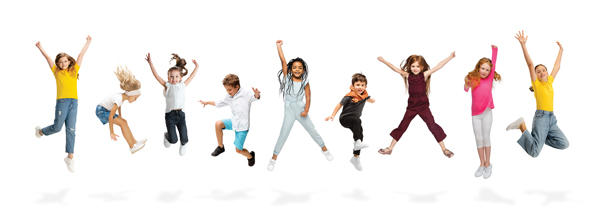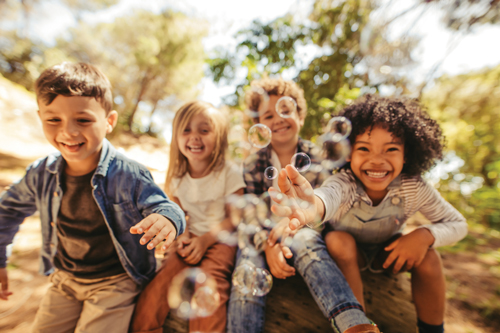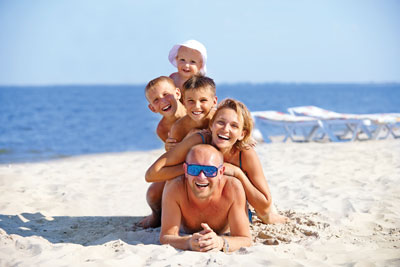
by Adry Capodanno
The Holiday Fixer
The turn of the year often sparks thoughts of the next family escape. As winter sets in, many parents across Surrey begin looking ahead to February half-term, Easter and summer holidays – chasing sunshine, child-friendly hotels and flight times that don’t mean dragging little ones to the airport at 2am. It should be exciting, yet the sheer number of options can feel overwhelming. Rising prices and limited availability don’t help either.
The encouraging news? With a little foresight – and a clear idea of your family’s priorities – planning can feel much smoother, and the end result far more rewarding. Here are some of the most common stumbling blocks when booking school holiday trips, and how to avoid them.
Start with what matters most
One of the easiest traps is trying to tick every box: all-inclusive for convenience, walking distance to a pretty town, short flights, endless activities and total peace and quiet.
The reality is that no trip can offer everything, particularly on a budget. The happiest holidays often come when parents decide what matters most, and allow a little flexibility elsewhere. For some, that might mean a resort just outside town with great facilities. For others, it could mean skipping all-inclusive dining to enjoy local restaurants.
Being clear on your top priorities usually leads to better choices and a more enjoyable trip overall.
Secure the right space early
Hotels may have plenty of rooms, but only a handful are truly designed for families – interconnecting spaces for teens, or layouts that let younger children sleep while parents relax nearby. The same goes for those dream villas with the perfect pool and just the right number of bedrooms. Unsurprisingly, these are always the first to go, and once they’re booked, they’re gone.
Planning ahead gives you more choice and the best chance of securing a setup that truly works for your family.
Rethink awkward flight times
Those crack-of-dawn departures may look tempting, especially if they save money. In practise, they often set the wrong tone for the trip.
Waking children in the early hours, or hanging around after an inconvenient checkout, isn’t the best start.
It’s worth weighing up whether the savings – or the novelty of a far-flung destination – outweigh the extra tiredness. Often, a well-timed flight means more time enjoying your holiday and less time catching up on sleep!
Don’t rely on other people’s ‘perfect’ choice
It’s natural to ask friends for recommendations – perhaps a neighbour swears by their favourite spot in Spain. While helpful, what delights one family may frustrate another. A long transfer can be fine with older children but draining with toddlers. Some youngsters thrive in kids’ clubs, while others prefer to be with parents.
The key is not to follow trends, but to think honestly about what your own family enjoys and what you need from this particular holiday. That makes sorting through the noise much simpler.
Know when to ask for expert advice
Planning your own flights, hotels and activities can feel like part of the adventure. But it’s worth knowing when expert guidance can make a difference. Booking elements separately doesn’t offer the same financial protection if flights are delayed or cancelled, and sometimes a hotel looks far better online than it does in person.
Adventure and reassurance don’t have to be opposites. More parents are now choosing holidays that combine exciting experiences – from safaris to cultural tours – with the security of a protected bespoke package. In the end, it’s about recognising when advice can save you time, money and stress.
Why planning ahead helps
With school holiday dates fixed, demand always outstrips supply. The most suitable rooms, convenient flights and well-located resorts are snapped up quickly. Planning ahead not only increases choice but can also mean better value.
Families who organise trips earlier tend to enjoy a calmer lead-up and fewer last-minute compromises. A little forward thinking really does make all the difference.
Family holidays are more than just time away – they’re rare chances to pause, connect and make memories together.
Whether it’s securing the right room, steering clear of awkward flight times, or being realistic about your wishlist, a thoughtful approach goes a long way. And with the growing trend towards family bespoke travel, many parents are seeking holidays designed around their needs rather than one-size-fits-all solutions.
So, as the next school holidays approach, perhaps the best gift you can give your family this year is something money can’t buy at the last minute: a little extra planning.
Adry at the Holiday Fixer specialises in expert, high-quality, bespoke travel itineraries worldwide, with a focus on family holidays and stress- free, parent-to-parent service. Your next adventure is just a chat away! Contact Adry at Adry@theholidayfxer.com or 07583581042 for a free consultation.

